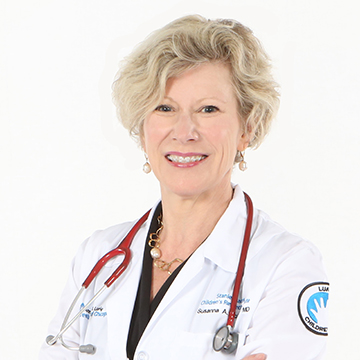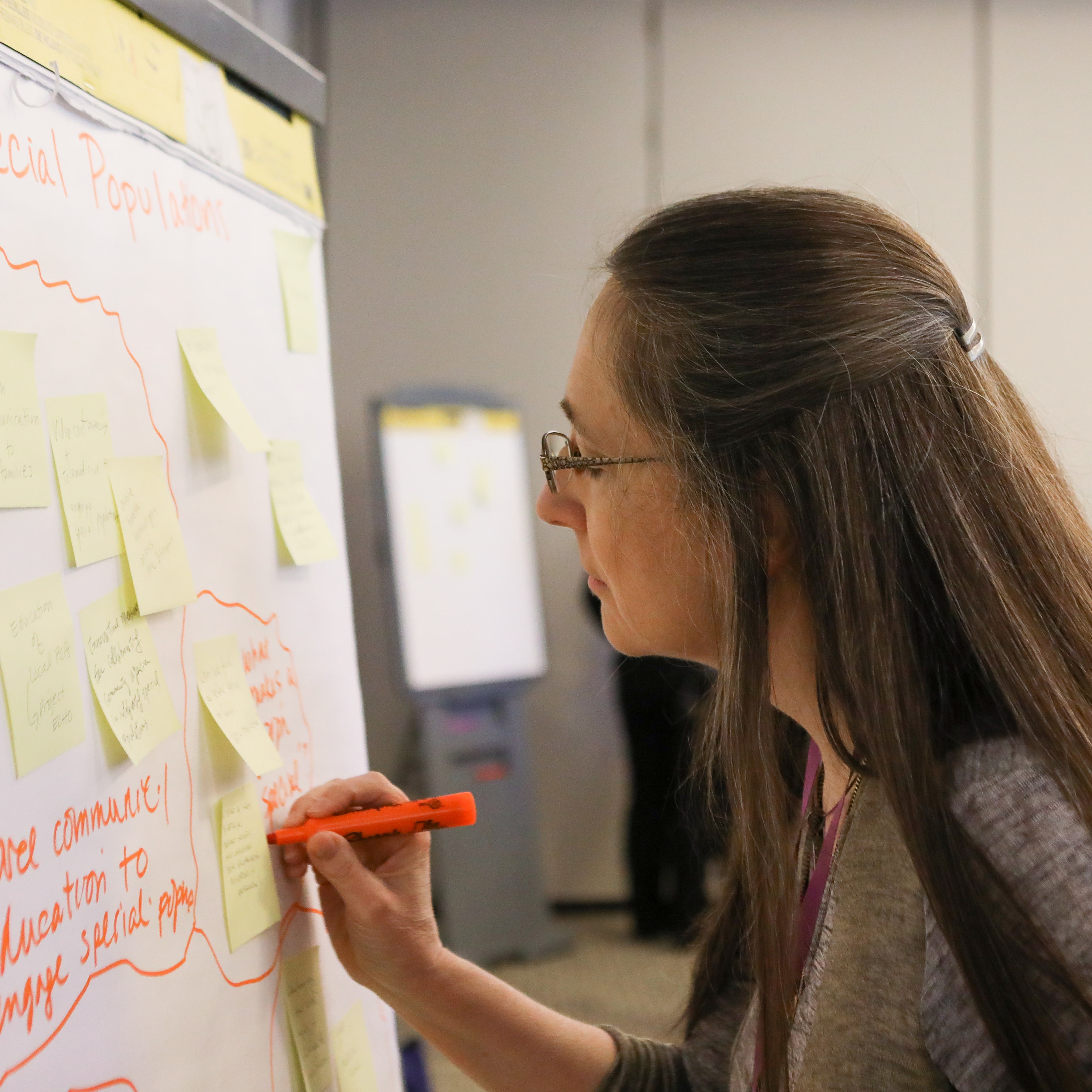Un-Meeting Takes Holistic Approach to Lifespan, Life Course Research
Northwestern-hosted event welcomes translational scientists, support staff from across the nation
Unlike candles atop a cake, a person’s biological age is far from linear.
“Physical and cognitive functioning — attributes represented by biological rather than chronological age — are the result of complex interactions and contextual factors that affect health and development over time,” said Stephen Kritchevsky, PhD, professor of Gerontology and Geriatric Medicine at Wake Forest University. “Aging is never a straight line, which is why people celebrating the same birthday can be so different.”
As one of five presenters during a fast-paced opening session at the Clinical and Translational Science Awards (CTSA) Un-Meeting on Lifespan and Life Course Research, Kritchevsky highlighted some of the challenges in quantifying biological aging. The March 2 event held at Northwestern Medicine’s Prentice Women’s Hospital in Chicago was the first CTSA Un-Meeting hosted by the Northwestern University Clinical and Translational Sciences (NUCATS) Institute.
So, what exactly is an Un-Meeting? The concept is steeped in its simplicity. The Un-Meeting format is without the governance or structure of a traditional symposium, providing opportunities for attendees to focus on what matters most to them. Participants do this by driving the agenda, steering the resulting discussions and working in multidisciplinary teams to develop innovative solutions.

By bringing together multidisciplinary researchers who focus on infants through older adults, community engagement, recruitment and retention and life course research, we were able better to generate ideas ... across the lifespan.”
A morning “Un-Plenary” session was designed to elicit discussion topic ideas for the first half of the daylong event. Not long after Christine Stake, research operations manager in Surgery at the Ann & Robert H. Lurie Children's Hospital of Chicago, presented on “Partnerships with Stakeholders Across the Lifespan,” poster boards inside of the main conference room began to fill with hundreds of sticky notes. The 3-by-3-inch yellow squares represented potential breakout groups and were eventually narrowed to a dozen topics:
- Life Course Data Integration
- Life Course Methods
- Cultural and Age Considerations in Recruitment
- Innovative Strategies for Recruitment
- Strategies for Promoting Aging Well
- Social Determinants/Rural Health Across the Lifespan
- Caregiver Roles in Research from Infancy to Older Age
- Patient Engagement: Getting Started and Retention
- Patient Engagement: Education, Communication, and Resources
- Transgenerational Research: Maternal, Fetal, and Beyond
- Life Course Measurement
- Funding for Integrated Life Course Research
“By bringing together multidisciplinary researchers who focus on infants through older adults, community engagement, recruitment and retention and life course research, we were able to generate ideas to better research focused on improving health for diverse populations across the lifespan,” said Susanna McColley, MD, professor of Pediatrics, Associate Director for Child Health at NUCATS and a clinician at Lurie Children’s Hospital. “These groups are unlikely to meet and work together in a traditional academic conference setting, but diversity is a critical component of any Un-Meeting.”
Representing 48 CTSA Hubs and Institutional Development Award Program Infrastructure for Clinical and Translational Research sites from throughout the nation, the nearly-100 Un-Meeting attendees featured an equal group of trainees, early career researchers and midcareer or senior investigators. Nearly 20 professions were represented from anthropologists and bioinformaticist to physicians and research staff.
“You probably could not have curated a more balanced diverse group of people,” said McColley, who chaired the Un-Meeting Steering Committee.
Lifespan vs. Life Course:
What’s the Difference?
- Lifespan is a measure of longevity involving chronological age; sometimes used to describe groups of individuals.
- Life course is the interaction of contextual factors over time that affect health and development; complex.

NUCATS Director Donald Lloyd-Jones, MD, ScM, senior associate dean for clinical and translational research and the chair and Eileen M. Foell Professor of Preventive Medicine, as well as Michael Kurilla, MD, PhD, director of the Division of Clinical Innovation at the National Center for Advancing Translational Sciences (NCATS) welcomed attendees to Chicago.
“I have been pleasantly surprised by how productive this meeting structure is and how well it works,” said Kurilla, who has attended all four CTSA Un-Meetings. “The format brings together a variety of people and avoids the didactic nature of many symposiums. It replaces lectures with a near constant interchange of ideas in a space that spurs innovative thinking and solutions.”
The afternoon Un-Plenary session featured research from four TL1 Scholars: NUCATS member Monica Bianco from Lurie Children’s, Lindsey Potter from the University of Utah, Madison LeCroy from the Albert Einstein College of Medicine and Emerald Rivers from the Johns Hopkins University School of Nursing.
Designed for predoctoral and postdoctoral trainees, the TL1 program is part of the CTSA and exposes scholars to a combination of formal coursework and direct clinical and translational research experience.
“We were delighted that, for the first time at an Un-Meeting, an Un-Plenary was presented by these talented trainees,” said McColley, in her closing remarks. “As valuable as these Un-Meetings are, it is what comes next that holds the greatest potential and so I’m excited to see the connections, collaborations and concepts that evolve as a result of this amazing event.”
The Un-Meeting on Lifespan and Life Course Research was funded in part by CLIC, under Grant U24TR002260. CLIC is the coordinating center for the CTSA Program, funded by NCATS at the National Institutes of Health. The Un-Meeting was also supported by the NUCATS Institute, Grant UL1TR001422.
Written by Roger Anderson




